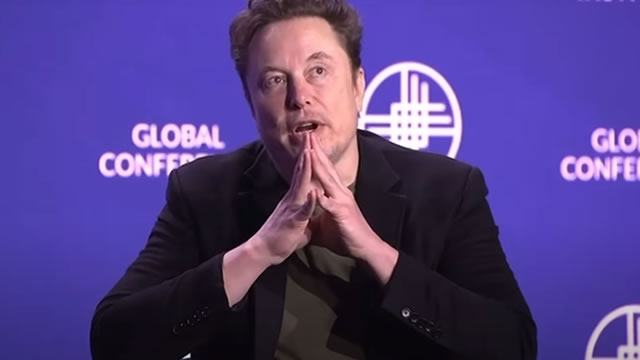The Impact of Trump’s Tariffs on Tesla and the Auto Industry
President Trump’s decision to impose a 25% tariff on all foreign-made cars and auto parts has sent shockwaves through the automobile industry. While this move is expected to have significant repercussions for many players, Elon Musk’s Tesla could potentially gain an advantage over its key rivals.
Tesla’s Potential Edge
Tesla, an American electric vehicle (EV) manufacturer, produces the majority of its vehicles in the United States. With the new tariffs, the company will be less affected than its foreign competitors, such as BMW, Mercedes-Benz, and Volkswagen, which manufacture their vehicles abroad and import them into the U.S.
Tariffs and Consumers
The tariffs will likely result in higher prices for consumers. According to a study by the Center for Automotive Research, the tariffs could increase the price of a typical new vehicle by $1,800. This price hike could deter some buyers, particularly those in the market for luxury vehicles, which are often imported.
Tariffs and Auto Companies
Auto companies, particularly those that rely heavily on imported parts, are expected to bear the brunt of the tariffs. According to a report by JPMorgan Chase, the tariffs could lead to a $2,000 increase in the cost of building a vehicle in the U.S. This increased cost could force companies to raise vehicle prices or reduce their profits.
Tesla’s Competitive Position
Tesla, however, could potentially benefit from the tariffs. The company’s domestic production and its focus on EVs, which are exempt from the tariffs, could give it a competitive edge. Additionally, Tesla has been working to reduce its reliance on imported parts, which could further insulate the company from the tariffs’ impact.
Global Impact
The tariffs could also have far-reaching consequences beyond the U.S. auto industry. They could lead to a trade war between the U.S. and other major auto-producing countries, such as China and the European Union. This could result in retaliatory tariffs, which could further disrupt global trade and economic growth.
Conclusion
President Trump’s tariffs on foreign-made cars and auto parts have the potential to significantly impact the auto industry, with Tesla potentially emerging as a key beneficiary. The company’s domestic production and focus on EVs could give it a competitive edge in the face of higher prices for imported vehicles and parts. However, the tariffs could also lead to a trade war, with far-reaching consequences for the global economy.
- Tesla could benefit from tariffs due to domestic production and focus on EVs
- Higher prices for imported vehicles and parts could deter buyers
- Auto companies could face increased costs and reduced profits
- Tariffs could lead to a trade war with major auto-producing countries





